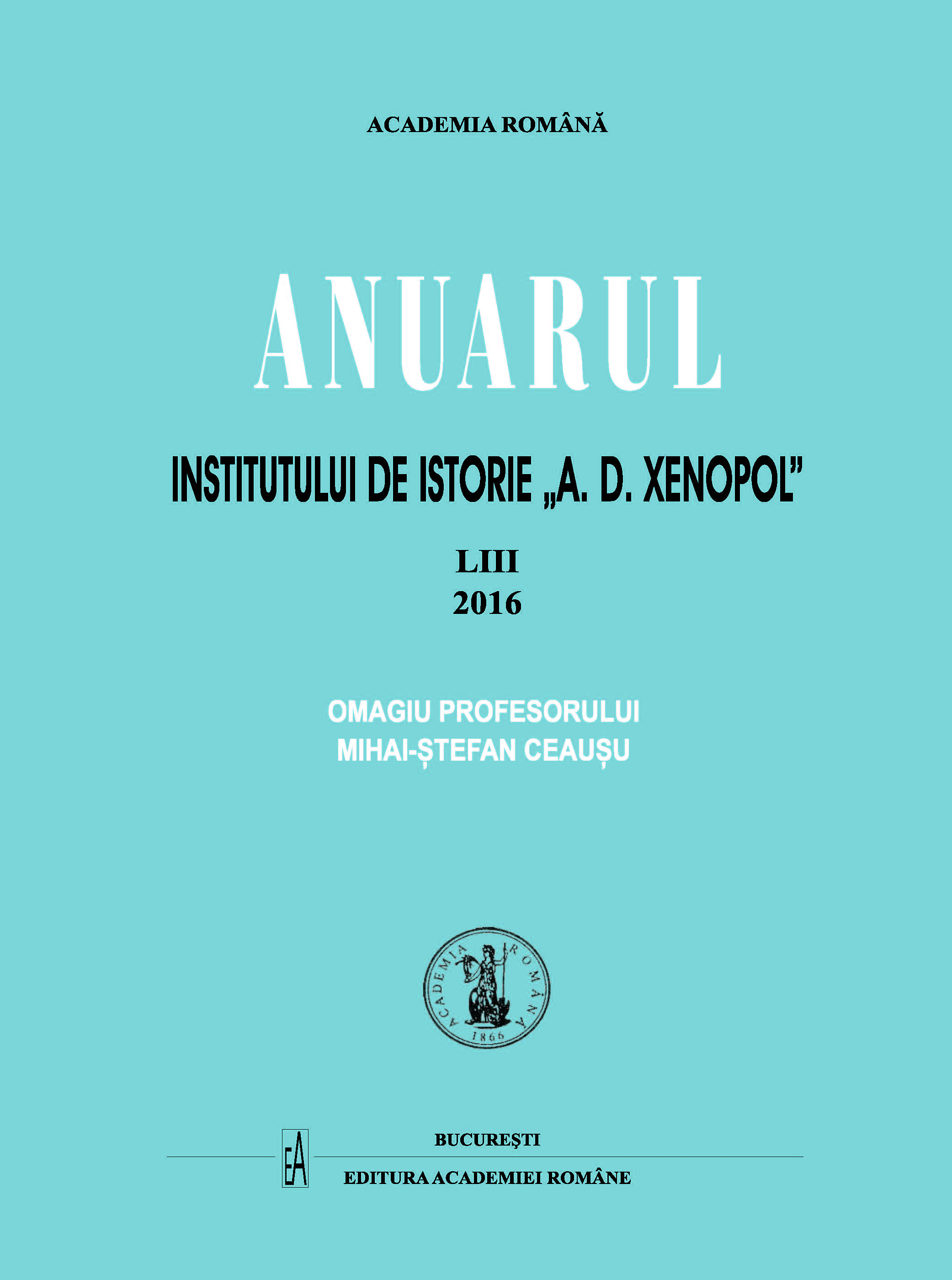LASCĂR CATARGIU ȘI „VERSIUNEA CONSERVATOARE” A UNIONISMULUI MOLDOVENESC (1855−1859)
LASCĂR CATARGIU AND THE „CONSERVATIVE VERSION” OF THE MOLDAVIAN UNIONISM (1855−1859)
Author(s): Simion-Alexandru GavrişSubject(s): History
Published by: Editura Academiei Române
Keywords: Unionism; separatism; petitions; consultative assembly; Elective Assembly
Summary/Abstract: Lascăr Catargiu first manifested his views regarding the union of Moldavia and Walachia at the beginning of 1856. In February, he was among the subscribers of a unionist petion, addressed to the Moldavian Prince. During the confrontation between the adepts of the union and the so-called separatists, he was active in the “national” committee of his home county, Covurlui. Catargiu imposed himself as a leader of the unionist movement only after the formation of the consultative assembly (“Divan ad-hoc”) elected to inform the great powers of Europe on the “wishes” of the Moldavians and Walachians. Thanks to his extensive family and personal relations, Catargiu was elected in the bureau of the assembly and in several important committees. His rising political prestige and a favorable context gave him the chance to candidate to the Moldavian throne. He was supported by the conservative wing of the unionists, eager to avoid a much-feared land reform. However, Catargiu was not popular among other “nationalist” factions or the foreign consuls. His conflicts with several other unionist leaders (Costache Negri, Mihail Kogălniceanu, Vasile Alecsandri) completely ruined his chances of becoming Prince. Accepting his defeat, Catargiu became one of the early supporters of Alexandru Ioan Cuza, in order to prevent the election of Costache Negri, an outspoken liberal. Cuza was, indeed, designated as candidate of the “national party”, and later elected as head of state. Although his candidacy failed, the prestige of the “pretender” was consolidated; Catargiu became, in the coming years, one of the informal leaders of the Moldavian Elective-Legislative Assembly.
Journal: Anuarul Institutului de Istorie »A.D. Xenopol« - Iaşi
- Issue Year: LIII/2016
- Issue No: 53
- Page Range: 101-116
- Page Count: 16
- Language: Romanian

